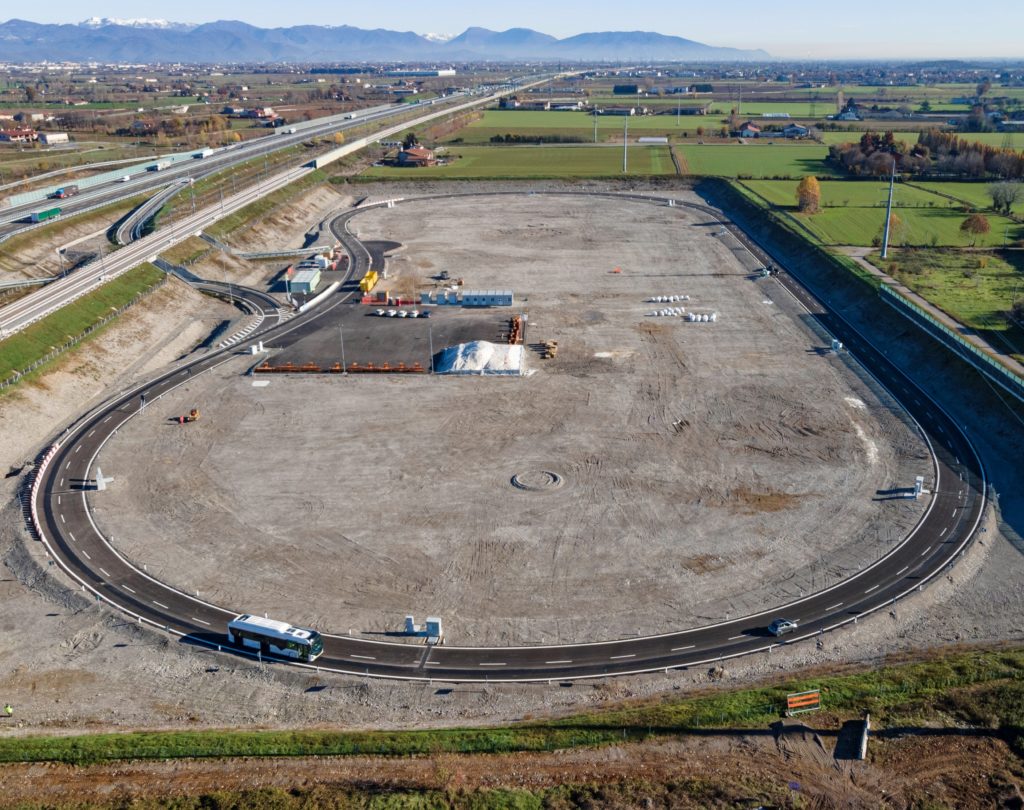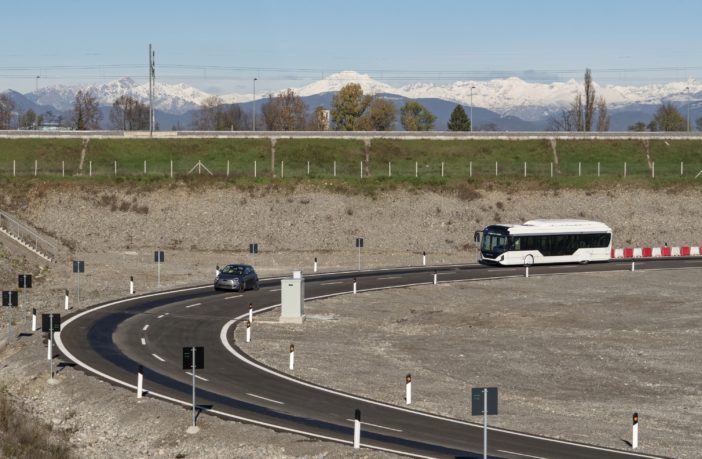After years of intense, in-depth studies, Arena Del Futuro – the circuit built by A35 Brebemi, the direct motorway link between Brescia and Milan, in collaboration with Stellantis and other international partners, public institutions and universities – has now become a reality. Its objective is to field test revolutionary electric charging with dynamic induction.
After identifying the road electrification technologies and fine-tuning the circuit, phase 3 of the project now begins, focused on piloting the technology in use. The inauguration of the 1,050m long circuit has successfully taken place. Located in a private area of the A35 autostrada near the Chiari Ovest exit, it is powered with an electrical output of 1 MW. Arena del Futuro is now ready to field test the innovative technology used to charge electric vehicles when they are driven over the circuit.

To do so, the first vehicles (New 500 and the Iveco E-Way bus) have been fitted out to test the system and have already clocked up many kilometers, with more than encouraging results. The aim is to demonstrate how the DWPT (Dynamic Wireless Power Transfer) system – the main feature of Arena del Futuro – is proving to be one of the best candidates in giving immediate, concrete answers when it comes to the requirements for decarbonization and environmental sustainability in the mobility sector.
Stellantis’ participation in this project thus forms part of the electrification strategy illustrated by the Company at its EV Day on July 8th, 2021. The main objective is to offer customers not only cutting-edge vehicles, with great range and ultra-fast charging speeds, but also an ecosystem of services that can meet all the needs of an increasingly demanding client base. By 2025, Stellantis plans to invest over €30 billion in electrification and software development, with the aim of supporting decarbonization plans and simultaneously ensuring “best-in-class” customer satisfaction, all over the world.
For Anne-Lise Richard, Head of the Global e-Mobility Business Unit at Stellantis: “this is a cutting-edge solution to provide a concrete answer to the issues of range and charging, both of which customers are concerned about.” To follow up on the announcements made at EV Day, Anne-Lise Richard stated: “We’re accelerating our role of defining the mobility of the future and, in this sense, DWPT technology seems to us to be in line with our desire to offer a concrete response to customers’ requirements. Charging vehicles while they are on the move provides clear advantages in terms of charging times and the size of their batteries.”
The potential offering of innovative services such as the DWPT system will help Stellantis to meet the challenging electrification targets announced at its EV Day: more than 70% of the vehicles it sells in Europe and over 40% of those sold in the United States will be low-emission vehicles (LEVs) by 2030.
Using DWPT, electric vehicles can be charged “wirelessly”, by driving them in wired lanes with an innovative system of turns installed under the tarmac. This technology can be adapted for all vehicles equipped with a special “receiver”, which transfers the energy incoming from the road infrastructure to the battery, aiming at a “zero-emissions” mobility system. At the same time, the advanced connectivity over IOT (Internet of Things) technologies will guarantee maximum road safety, made possible by constant dialog between the autostrada and the vehicles traveling along them. The road surface will also be optimized to make it more durable without altering the efficiency and effectiveness of the inductive charge.
This project is the first example of collaborative innovation for the “zero-emissions” mobility of people and goods. A35 Brebemi-Aleatica and Stellantis – together with ABB, Electreon, FIAMM Energy Technology, IVECO, IVECO Bus, Mapei, Pizzarotti, the Polytechnic University of Milan, Prysmian, TIM, Roma Tre and Parma Universities, the Fire Brigade and the Traffic Police – have now taken a major and extremely concrete step with “Arena del Futuro”, recently cited by the prestigious Time magazine as one of the 100 most important inventions of 2021.
By Web Team




